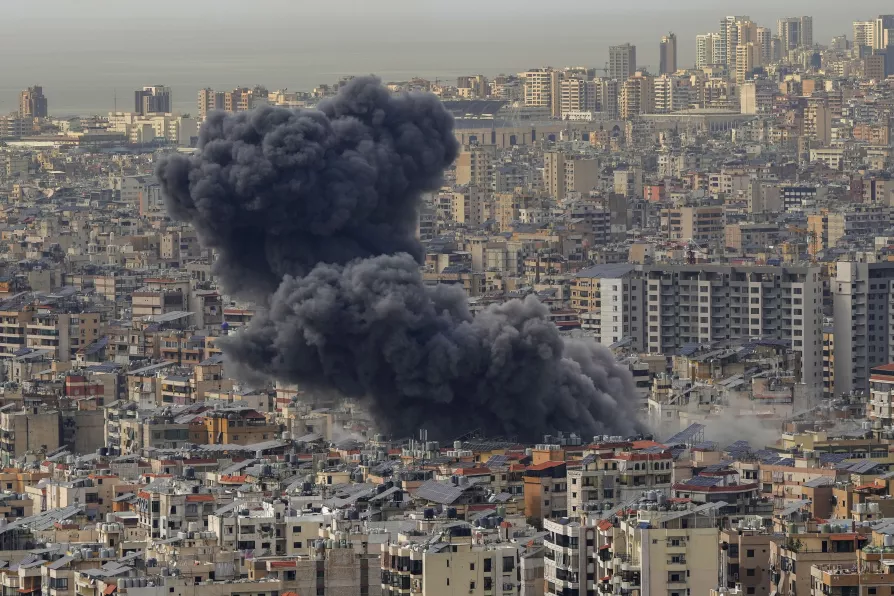Israel launches air attack on Beirut

 Smoke rises following an Israeli airstrike on Dahiyeh, in the southern suburb of Beirut, Lebanon, Friday, March 28, 2025
Smoke rises following an Israeli airstrike on Dahiyeh, in the southern suburb of Beirut, Lebanon, Friday, March 28, 2025
ISRAEL has launched its first attack on the southern suburbs of the Lebanese capital Beirut since a ceasefire ended the latest Israel-Hezbollah war in November.
Following today’s strike, Israel’s army said it had attacked a Hezbollah drone storage facility in the area of Dahiyeh, which it described as a key stronghold of the Shi’ite resistance movement.
Israel had issued a warning for the residential and commercial area to be evacuated. The target was near at least two schools.
Similar stories














